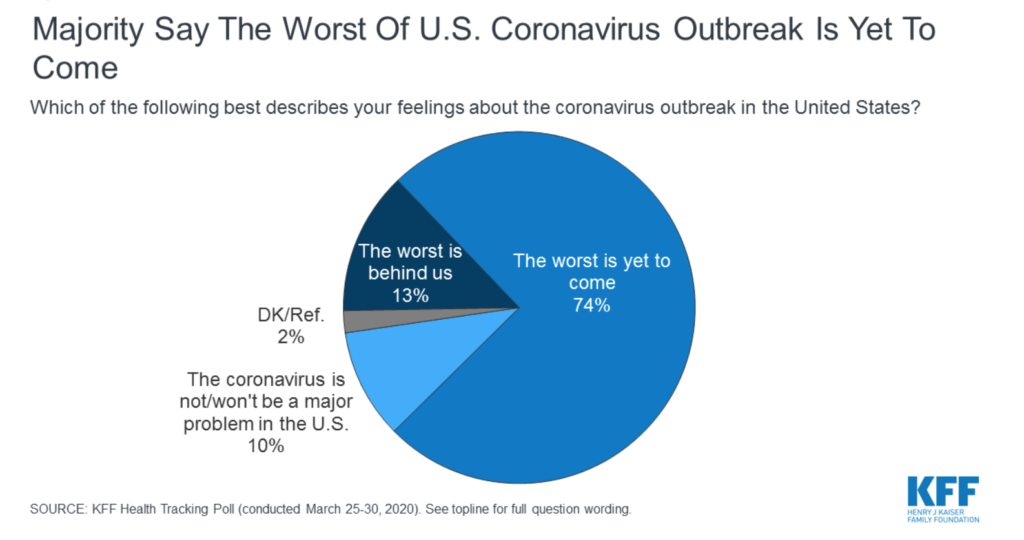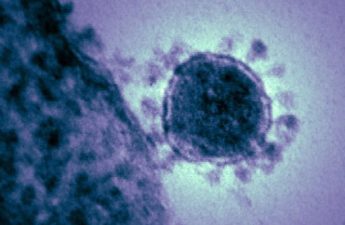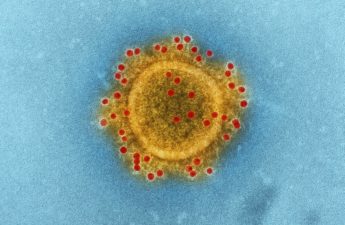
Kaiser Family Foundation
The coronavirus pandemic is having a substantial impact on Americans’ lives, a poll by the Kaiser Family foundation has found.
- Seven in ten Americans (72%) saying their lives have been disrupted “a lot” or “some” by the coronavirus outbreak.
- Partisan differences on this question found in the earlier poll have largely been erased, and in the current poll, large majorities of Republicans (70%), independents (72%), and Democrats (76%) say their lives have been disrupted.
- Most also report no end in sight with three-fourths saying “the worst is yet to come” when it comes to the coronavirus outbreak in the U.S., while few (13%) say “the worst is behind us.”
- More than half now reporting being worried that their investments will be negatively impacted for a long time (59%),
- More than half worry they will be laid off or lose their job (52%).
- Nearly half said they worried they will lose income due to a workplace closure or reduced hours (45%).
- Nearly six in ten adults (57%) report being worried they will put themselves at risk of exposure to coronavirus because they can’t afford to stay home and miss work
- The vast majority of the public, including majorities of Democrats, independents, and Republicans, say U.S. policy should be prioritizing the slowing down of the spread of the coronavirus rather than the U.S. economy.
- Eight in ten say “the U.S. should take measures aimed at slowing the spread of the coronavirus while more widespread testing becomes available, even if that means many businesses will have to stay closed.”
- Fewer, 14%, say “the U.S. should ease up on measures aimed at slowing the spread of the coronavirus soon, in order to open business and get the U.S. economy going again, even if that means more people would get coronavirus and could die.”
- Nearly all Americans – including large majorities across partisans and age groups – report they have either been taking social distancing measures such as deciding not to travel, cancelling plans, or staying home instead of going to work, school, or other activities (92%), or say they have been sheltering-in-place and not leaving home except for essential services such as food, medicine, or health care (82%).


